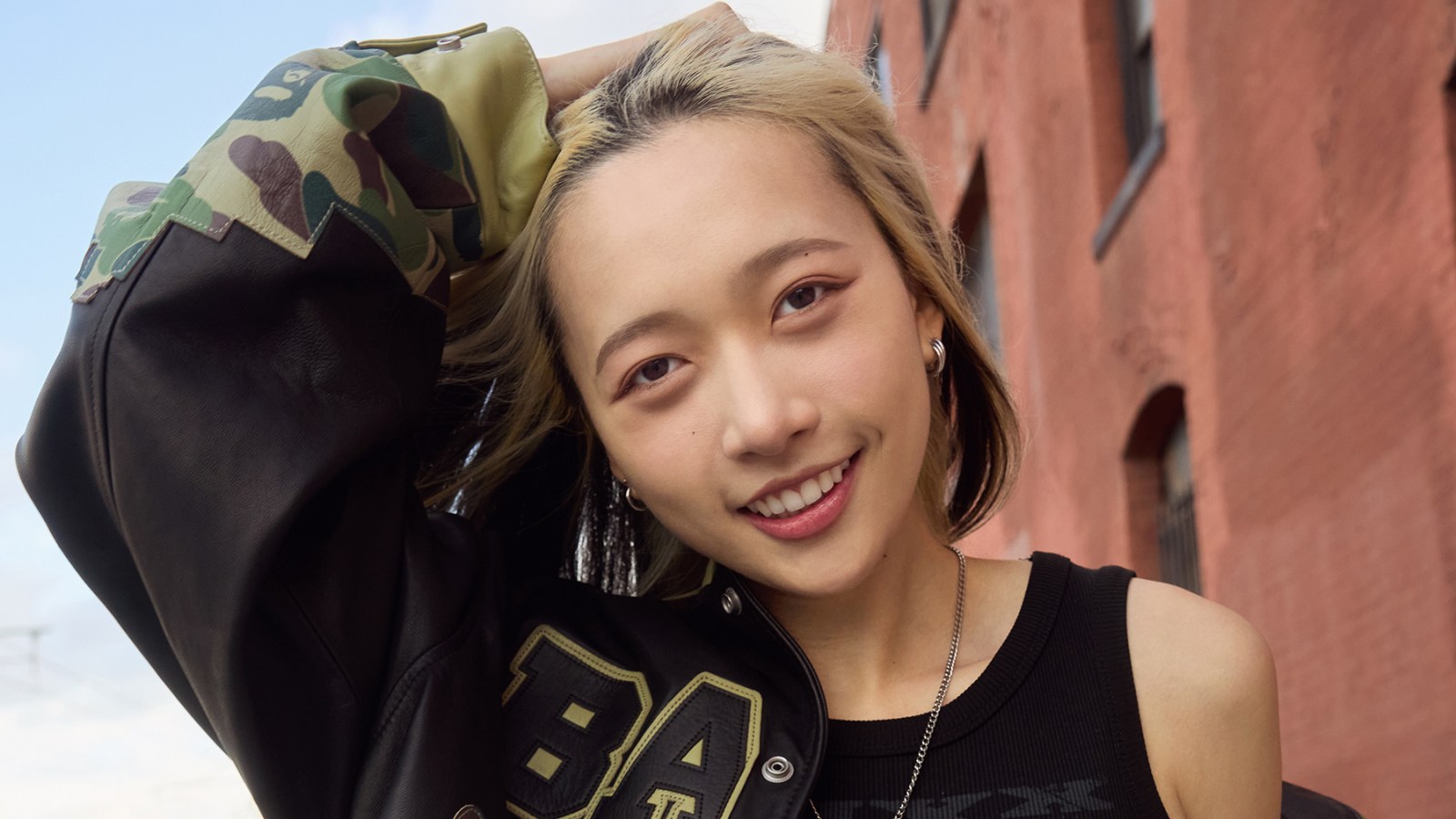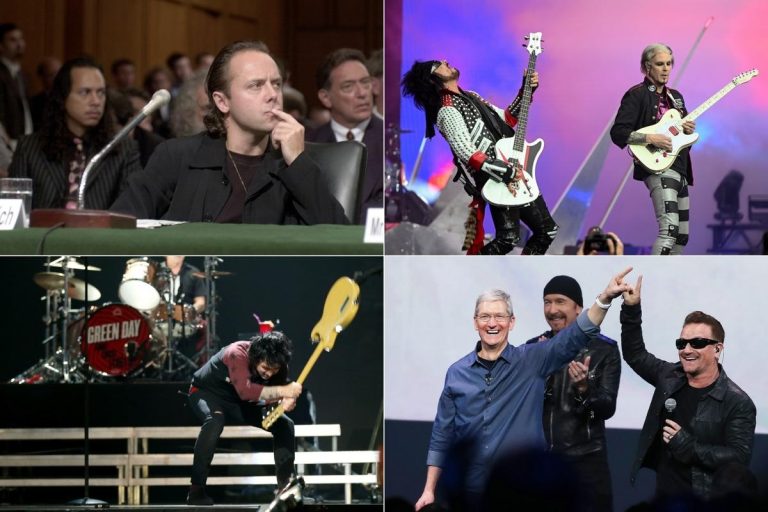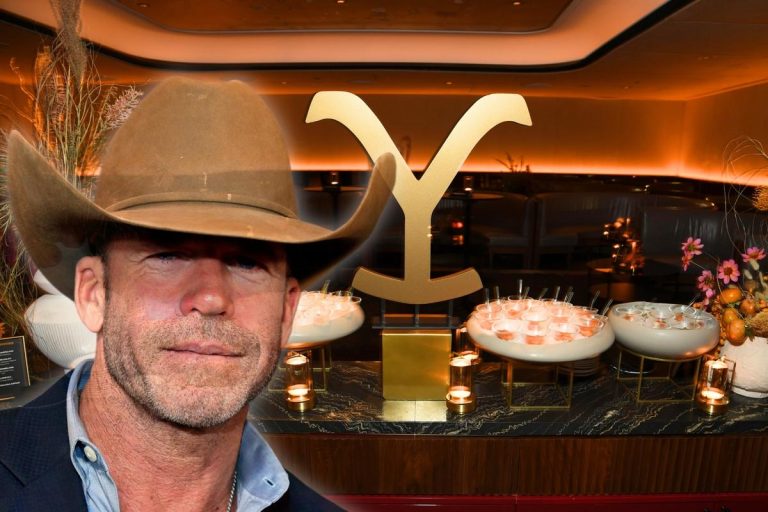W
hen Hannah Bahng arrives at Chicago’s Millennium Park, she makes a beeline for Cloud Gate — the massive, 33-foot-high, 110-ton public sculpture by artist Anish Kapoor that is known colloquially as the Bean. Bundled up in baggy everything, the singer-songwriter examines the Bean from multiple angles before picking a spot to pose for photos to share with her fans on social media.
After spending Thanksgiving with her U.S. manager, the 20-year-old Australian musician has “Pass the Cranberry Sauce” (from Bob’s Burgers) on her mind, breaking into humorous renditions of the song as we walk to a nearby coffee shop. There, she will fight me to pay the check — just two Koreans of different generations, where tradition dictates that the elder (me) should pick up the tab, but the younger (her) keeps pushing my credit card away. The amused barista eventually tires of our back-and-forth and comps the drinks. By this time, he has recognized Bahng from social media. (“We follow some of the same people,” he tells her.)
Settling into a seat at the crowded cafe counter, Bahng sips her matcha latte with oat milk and contemplates how she got here. Not here as in Chicago, but headlining her first solo tour — evocatively titled The Abysmal Tour: “Worst Night of Your Life” — and a sold-out one at that.
“I questioned whether it would do well, whether people would like me, whether I would be able to play well on stage,” Bahng tells Rolling Stone. “I just didn’t know, because I had never done it before.” When the tour kicked off in Dallas in early December, she says, “That was my first time onstage, besides playing with my high school band in year 12. I am genuinely in love with touring and performing. That feeling of being onstage is so fulfilling, quite literally the happiest I’ve ever been. Now that I’ve gotten to experience it, I can’t even imagine life without it, because it is so, so important for me to be able to express my music and connect in person with my [fandom] Blues.”
On this tour, Bahng culled her set list from her seven-song The Abysmal EP, covered a couple songs, and debuted “RIBS,” as well as her upcoming single “what never lived,” which will be released on Jan. 31. The latter deals with the ambiguity of situationships. (“Sometimes I think about what we could’ve been/The magic of the past still haunts me within/You said this was a forever thing, not a fling/You said that you could love me.”) Her vocals are strong, creating an atmospheric timbre that veers from plaintive to lush. And like her Gen Z contemporaries (Billie Eilish, Pictoria Vark, Conan Gray), her pensive songs ring of truth, longing, and just a touch of heartache.
“I think situationships are just stupid,” she says. “Personally, I’ve never been able to get out of the talking stage. I’ve never been in a romantic relationship. I’ve kind of never even kissed anyone. I’m 20 and I know it’s kind of crazy, but I feel this is extremely relatable for a lot of people.”
Born and raised in Sydney, Bahng is the daughter of Korean immigrants who moved to Australia searching for a better future. As she talks about the sacrifices her parents made, she starts to softly cry.
Hannah Bahng in Los Angeles, December 2024.
YURI HASEGAWA for Rolling Stone
“They have always been so supportive of me and encouraged me to pursue the path I wanted,” she says. “They never made me feel guilty because I wanted to go into music instead of something more traditionally stable. They’ve always told us kids that as long as we grow up well and are doing what we love, they’re happy. My parents didn’t have those kinds of choices.”
Dabbing her eyes with a tissue, she adds: “I talk with them a lot about how they grew up. I know they had to overcome so many adversities that tested their strength. I don’t know that I could do what they did. I love surprising my family with what I create, but it’s also having their unwavering emotional support that helps me stay sane. At the end of the day, I just really want to make them proud.”
As a precocious child who loved being the center of attention, Bahng was a natural entertainer. She listened to the eclectic music her parents played, which included classic pop, Korean trot, and K-pop. Bahng knew she wanted to be involved in music, but — like so many diasporic Koreans before her — she didn’t think she would be accepted in the western music market.
So it wasn’t surprising that, as a young teen, she set her eyes on launching a career as a K-pop artist in South Korea.
“For the longest time, I thought that was the only path available to me, that it was the only way I could even be close to music,” Bahng says. “But during the pandemic, when I was in high school, I kind of had this epiphany. What if I switched gears and did something completely different, where I could have so much freedom and be able to be hands-on with everything?”
As a fan of K-pop, she makes it clear that she isn’t slamming the industry. After all, her older brother Chris — known professionally as Bang Chan — is the leader of the popular idol group Stray Kids, whose Ate sold more CDs in the U.S. last year than any album but Taylor Swift’s The Tortured Poets Department, according to Luminate. (The boy band is currently on a world tour that swings through U.S. stadiums this May and June.) But what she learned early on about herself is that her creative process doesn’t allow for a lot of collaborators, or even bandmates. She is a solo artist through and through.
After she has written and fine-tuned her music, she sends the finished songs to her longtime producer, Andrew Luce. By then, she has already come up with the concepts for her upcoming music videos and drawn the storyboards to guide the cinematographer. If you look at the list of credits on any of her work, they begin and end with her name. Lyrics, composition, directed, executive produced — all by Hannah Bahng. She also designs all her merchandise, and usually does her own hair and makeup, as well as styling herself. Bahng is clearly a young woman who knows who she is and how she wants to present herself artistically.
“I like to stay busy,” Bahng says, laughing. “At first it was out of necessity. As an indie artist, I don’t have big label money to back me up. But it is also true that I really enjoy the entire process, from writing the song, to seeing it played out as a video, to playing the music live on tour. It is literally a dream come true. At the end of the day, I can know that I did well or that I didn’t do so great, but that it was me at the time.”
Bahng’s initial foray into the indie music world came via TikTok. At 17, an age when her classmates gravitated towards whatever was trendy, Bahng was singing along to Air Supply and whoever else came on her mother’s favorite oldies radio station. But if there is one song that became the catalyst for her career, it was her cover of Bill Withers’ 1980 hit single “Just the Two of Us.”
“My manager found me on her Tiktok For You Page,” she says. “I was singing in my pajamas wearing my sunnies, just singing live. She thought I was interesting and kind of cool and then forgot about me for two weeks.” Laughing, Bahng adds, “She later reached out to me by email, and then we talked for about three hours and that’s how we met. I’m not sure what I’d be doing right now if she hadn’t found me. I guess I’d be in university.”

Hannah Bahng soundchecks at the Moroccan Lounge in Los Angeles.
YURI HASEGAWA for Rolling Stone
That serendipitous meeting led to the kind of collaboration that eludes most young artists, and it gave Bahng the impetus to ramp up her songwriting. Thanks to the piano lessons she had been made to take as a child, she had the technical skills to release the melodies floating around in her head. She also honed her guitar technique. And in 2022, Bahng made the decision to create her own label, Bahng Ententertainment, with her like-minded manager.
By now, the industry was paying attention. But when a major label offered her a recording contract the next year, Bahng turned them down. As with most of the decisions she has made, Bahng says she has no regrets.
Songwriter/producer Ellis Miah — who has worked with Miley Cyrus, Big Freedia, and BTS — tells Rolling Stone, “Hannah’s music strikes a beautiful balance between youthful optimism and artistic depth … She’s taking risks in a way that feels refreshing. Hannah represents a new generation of singer-songwriters who are unafraid to be unique and sometimes even a little quirky. It reminds me of the late ’90s and early 2000s era, when artists like Fiona Apple, Lisa Loeb, Sheryl Crow, and Damien Rice brought individuality and emotional storytelling to the forefront, while still being very pop accessible.”
She is a refreshingly candid artist who’s skilled at wordplay — on “Abysmal,” she sings, “Fuck me dead/Yes, I swear/This is the beginning of familiar ends” — and honest about her emotions. Another highlight of The Abysmal EP is a two-minute track called “hannah interlude,” where she contemplates her worries: “I’m terrified/Of what’s to come/With no escape/From what I’ve done/I pray that I won’t succumb.” In the song’s outro, we hear a snippet of her mother’s voicemail message reminding her that it’s OK to slow down during chaotic times. The song ends with the affirmation, “I love you so much, my daughter.”
But as important as family is to her, she is wary of being viewed as a nepo sister. “I’m more of a whimsical grandpa,” she jokes. Though she and her famous brother are each other’s biggest fans, she says it’s important to them to maintain separate identities. (They also have a younger brother whose privacy they fiercely protect.)
“I’m super grateful that my family is always so emotionally supportive of my passion for music and also allows me the space to figure this out on my own, so that I can create my own way,” Bahng says. “I’ve always supported my brother Chris with his career, and I’m so proud of everything he’s accomplished. So it means the world that he’s so encouraging of the path I’ve chosen. I don’t really like to show anybody outside of my very small team what I’m working on, whether it’s new music or future business plans, until it’s finished and feels fully ready, which is why I feel so lucky knowing that my family believes in me and cares for me no matter what. It’s so comforting not just as an artist, but as a daughter and sister.”

YURI HASEGAWA for Rolling Stone
At the second of her sold-out concerts in Chicago this past December, Bahng is at ease. In the pre-show VIP meet and greet with her Blues, she makes different poses with each fan, asks them questions about the gifts they’ve brought for her, and jokingly accepts marriage proposals (of which there are many). Onstage, she accompanies herself on the guitar and the piano. She happily banters with her audience, listens to their requests, and then challenges a fan to a Rubik’s Cube battle. (She remains undefeated.).
As a young artist whose repertoire is still expanding, she includes a couple of covers at her shows. It’s fitting that she chose Måneskin’s “Valentine,” a power ballad about the kind of oppressive love that can drive one to madness, and Bon Jovi’s 1986 hit “Livin’ on a Prayer,” which reflects on how love can get you through trying times. The songs she pens fall somewhere in between those extremes, where optimism usually beats pessimism into submission.
At the end of her set, she references her wry tour name, telling her fans, “My name is Hannah Bahng, and I hope you’ve had the worst night of your life.” As she leaves the stage, she looks back and waves at her Blues.
Later, in her dressing room, she plops down on the sofa. Taking a sip of tea, Bahng smiles and says, “I kept saying this and I will keep saying it, but I want to do this for the rest of my life. I cannot wait until my next show, and my next show, and my next show. It really has been such a dream come true. I feel like each stop has been the best night of my life.”




Leave a Comment